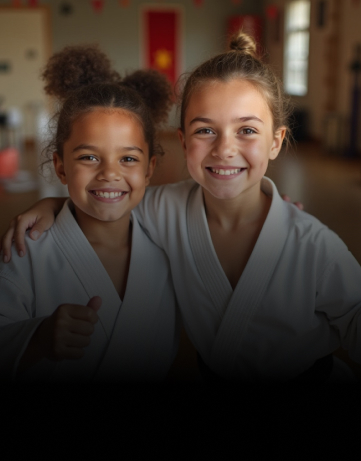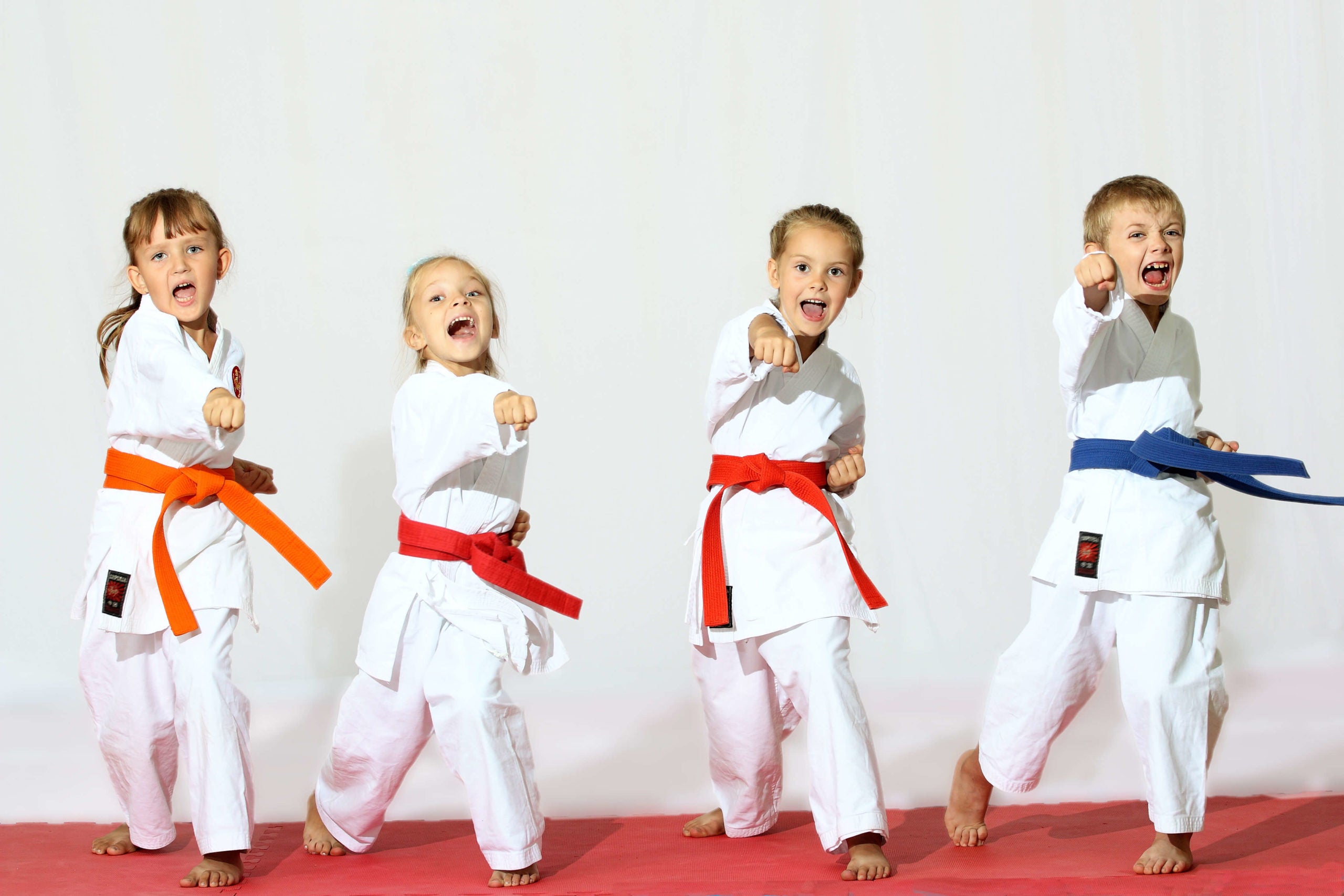Best Martial Arts for Families – Grow, Grow, and Train as a Family Group
Just How Karate for Kids Can Boost Self-confidence and Discipline in Young Martial Artists
Karate for children provides an one-of-a-kind opportunity to develop self-confidence and discipline in young martial artists. As they find out brand-new techniques and face difficulties, they not just gain skills yet also establish a solid feeling of self-regard. This structured atmosphere motivates them to value the trip of improvement. However exactly how does this training convert into their everyday lives? Discover the much deeper connections that make karate more than just a sport.
The Value of Self-confidence in Childhood Years Development
Confidence is a vital foundation in childhood years growth. When you support your kid's self-confidence, you empower them to encounter difficulties, take dangers, and express themselves easily. Youngsters with self-confidence are a lot more going to discover social scenarios and brand-new tasks, which can bring about long-term relationships and useful experiences.Encouraging your youngster to get out of their convenience zone fosters resilience. They learn that failure isn't completion yet instead a stepping stone to success. By celebrating their success, no issue just how little, you assist them recognize their abilities and worth.In this trip, assistance and positive reinforcement from you play a vital role. Whether it's via appreciation or just existing, your participation enhances their confidence. As they grow, this confidence comes to be a lifelong asset, outfitting them to browse both challenges and possibilities with a solid sense of self.
How Martial Arts Instructs Discipline and Emphasis
Karate helps you construct self-control and emphasis via its organized training regimen. As you exercise mindfulness during each session, you'll find out to concentrate better both on and off the floor covering. And also, setting and achieving objectives in karate enhances your ability to remain alert and committed.
Structured Training Routine
While you participate in karate training, you'll promptly find just how a structured routine instills technique and focus in young experts. Each class adheres to a particular layout, including workouts, strategy practice, and sparring. This uniformity teaches you to dedicate and value the process to enhancement. As you learn methods and kinds, you create a feeling of responsibility for your very own progress.The organized environment motivates you to establish objectives, whether understanding a new belt or improving a kata. You'll locate that staying focused during classes and drills sharpens your focus. The technique you cultivate in karate prolongs past the dojo, favorably impacting your schoolwork and everyday regimens. Each session enhances the importance of dedication, assisting you become an extra disciplined individual.
Mindfulness in Practice
As you practice karate, you'll discover that mindfulness comes to be a vital part of your training. Each step needs your complete focus, aiding you remain concentrated on the here and now minute. You'll find out to tune out interruptions and concentrate on your breathing, motions, and intents. This increased understanding develops your reflexes and improves your discipline.During sparring or types, you'll find the value of being psychologically existing - Karate Salisbury MD. You'll observe exactly how this focus not only improves your technique but also builds your self-confidence. By exercising mindfulness in martial arts, you grow persistence and durability, vital qualities that prolong beyond the dojo. In this way, martial arts shows you to harness your mind, assisting you develop a disciplined approach to obstacles both on and off the floor covering

Setting Goal Techniques
Setting objectives in karate isn't practically making belts; it's an effective method to grow discipline and emphasis. When you set certain, achievable targets, you produce a roadmap for your progression. Instead of simply intending to improve your kicks, attempt concentrating on mastering a specific strategy each month. This approach keeps you determined and engaged.Breaking down larger goals into smaller sized, workable steps aids you track your progression and celebrate tiny triumphes in the process. Whether it's refining your stance or increasing your sparring endurance, every goal enhances your commitment. As you accomplish these objectives, you'll construct confidence in your abilities and develop a solid feeling of self-control that prolongs beyond the dojo right into day-to-day life.
Building Resilience With Martial Arts
Fighting style, particularly karate, supplies kids a special opportunity to develop strength in an encouraging environment. In courses, they encounter challenges that push their limits, whether it's grasping a new strategy or competing with a companion. Each obstacle, nba play in like a missed kick or a lost suit, comes to be an opportunity to discover and grow.As they exercise, children learn to embrace pain and maintain trying, even when points get tough. They discover that failing isn't the end; it belongs to the journey. This frame of mind helps them jump back more powerful, not simply in the dojo, but in daily life.With each challenge they conquer, your kid develops confidence in their capacity to tackle barriers, fueling their resolution. With martial arts, they'll understand that strength isn't almost physical stamina; it has to do with psychological grit and perseverance, equipping them to face whatever life throws their way.
The Duty of Regard in Karate Educating
Respect is a fundamental principle in karate training, cultivating a culture of discipline and sociability among pupils. When you step onto the dojo floor, you're not just learning techniques; you're additionally finding out to value your trainers, peers, and the art itself (Karate Salisbury MD). Bowing at the beginning and end of course isn't simply a formality; it symbolizes your recommendation of others' efforts and dedication.As you develop common regard, you'll locate it boosts your learning experience. You'll listen a lot more attentively to your trainer and gain insights from fellow trainees. This environment motivates useful objection and assistance, enabling every person to grow together.Moreover, regard cultivates self-control. Acknowledging the value of effort and humbleness assists you stay focused on your training. In turn, this respect converts right into your daily life, enhancing your interactions and partnerships outside the dojo. With karate, you learn that respect is necessary for personal development and neighborhood building
Setting Goals and Accomplishing Success in Martial arts

Social Abilities and Team Effort in the Dojo
While training in the dojo, children naturally develop vital social skills and team effort capacities. As they practice together with peers, they learn to connect efficiently, share area, and assistance one another. Each class offers chances for cooperation, whether it's throughout partner drills or group workouts. This teamwork promotes relationships and develops a sense of belonging, making the dojo a nurturing environment.Kids also gain beneficial dispute resolution abilities. When they experience difficulties, such as disagreements throughout sparring, they find out to navigate these scenarios constructively. They practice perseverance and compassion, recognizing that everybody has different toughness and weaknesses.Moreover, taking part in team activities grows a feeling of responsibility. You'll see your child discovering to count on colleagues and take obligation for their duty in a team. These experiences not only boost their fighting styles journey but likewise furnish them with social devices they'll lug into various other locations of life.

The Long-Term Conveniences of Martial Arts Beyond Childhood Years
As kids mature and move right into adulthood, the advantages of karate prolong much past the dojo. You'll locate that the self-control and emphasis learned through karate can equate right into your specialist and scholastic life. Setting and accomplishing objectives in fighting styles promotes a solid work principles, which can push you to master any endeavor.Moreover, the confidence acquired from competing and mastering techniques can improve your self-confidence, aiding you take on obstacles head-on. This strength comes to be important as you face the uncertainties of adulthood.Additionally, the social skills developed through teamwork and camaraderie in the dojo can result in much better connections in both professional and personal spheres. You'll find out to connect properly, willpower problems, and develop a helpful network.Ultimately, karate shapes not just competent martial artists, but well-rounded people all set to handle the world.
Frequently Asked Inquiries
What Age Is Ideal to Begin Karate for Kids?
You can begin martial arts as early as age 4 or 5, however it frequently depends on your youngster's maturation and rate of interest. Finding a course that fits their age and energy degree makes a huge difference.
Exist Any Type Of Health And Wellness Benefits From Exercising Karate?
Yes, exercising karate deals numerous health and wellness benefits. You'll improve your adaptability, coordination, and stamina while enhancing cardiovascular physical fitness. And also, it boosts focus and mental wellness, making it a superb choice for general physical and mental wellness.
Just How Usually Should Youngsters Go To Martial Arts Classes?
You ought to motivate your children to participate in karate classes at the very least 2 to 3 times a week. Consistency assists them learn techniques properly and create abilities, making their experience a lot more satisfying and gratifying over time.
Can Karate Help With Managing Anxiousness in Children?
Yes, karate can assist take care of anxiety in children. It shows emphasis and self-control while offering a risk-free electrical outlet for power. You'll notice your child growing a lot more certain and tranquil as they practice on a regular basis.
What Equipment Is Required for Children Starting Martial Arts?
